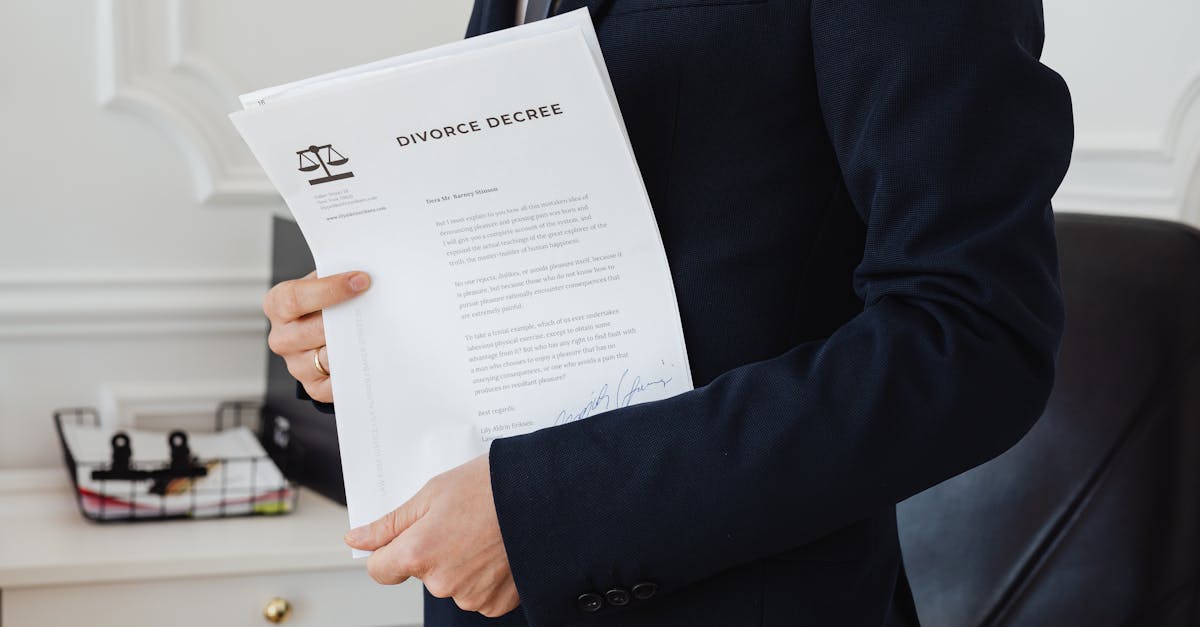
Seeking Professional Help
Seeking professional help can be a crucial step for individuals navigating the profound emotional turmoil caused by infidelity and trust issues. Therapy provides a safe environment to explore complex feelings such as betrayal, anger, and sadness. A trained therapist can guide partners through the tangled web of emotions, fostering an understanding of the underlying dynamics that contributed to the relationship breakdown. Many people find that speaking with a professional helps them gain clarity and perspective, paving the way for healing.
Various therapeutic approaches may be beneficial in recovery from infidelity and trust issues. Cognitive-behavioral therapy focuses on changing negative thought patterns, while emotionally focused therapy aims to strengthen the emotional bond between partners. Couples therapy can also facilitate open communication, allowing both partners to express their thoughts and feelings freely. Engaging in these therapeutic processes can promote understanding and healing, enabling individuals to rebuild their relationship on a stronger foundation.
Types of Therapy for Trauma Recovery
Therapy plays an essential role in healing from trauma following infidelity. Various therapeutic approaches can help individuals and couples navigate the emotional pain and confusion that accompany experiences of betrayal. Cognitive Behavioral Therapy (CBT) is one effective method that focuses on addressing negative thought patterns and behaviors, allowing individuals to reframe their understanding of events related to infidelity and trust issues. Additionally, Emotionally Focused Therapy (EFT) emphasizes attachment needs and fosters a deeper emotional connection, which can be crucial for recovery.
Another valuable option is trauma-focused therapy, which specifically addresses how the trauma of infidelity affects emotional well-being and relationships. This type of therapy helps individuals process feelings of anger, sadness, and betrayal. The goal is to provide tools for managing these emotions. Furthermore, couples therapy can facilitate open dialogue about infidelity and trust issues, offering a safe space to explore feelings and desires. Each of these therapeutic approaches aims to create a pathway toward healing and reconnection.
Rebuilding Trust After Infidelity
Rebuilding trust after infidelity is an essential yet complex process. It requires commitment and effort from both partners. Open and honest communication plays a crucial role in this journey. Each partner must express their feelings, fears, and expectations. A shared understanding of the situation can help both individuals navigate the emotional landscape created by betrayal. Trust is fragile and may take considerable time to repair.
Addressing infidelity and trust issues involves recognizing the underlying emotions that contribute to the breakdown. Both partners need to acknowledge feelings of hurt, anger, and confusion. It can be beneficial to establish clear boundaries moving forward. This often includes discussing what transparency looks like in the relationship. With consistent effort and patience, couples may find a path toward reconnecting and slowly rebuilding the trust that was lost.
Steps Toward Healing
Healing after experiencing infidelity requires patience and commitment from both partners. Acknowledging the emotional pain can be the first step towards recovery. Individuals may need to process feelings of betrayal, anger, and sadness before moving forward. Communication plays a crucial role throughout this journey. Engaging in open discussions allows partners to express their needs and expectations. Establishing emotional safety creates an environment where vulnerability is encouraged.
Addressing infidelity and trust issues is essential in rebuilding the foundation of a relationship. Couples therapy can provide a structured setting for exploration and understanding of the underlying problems. Healing often involves recognizing patterns of behavior that contributed to the infidelity and establishing new ways to foster intimacy and connection. By setting clear boundaries and goals, partners can gradually learn to trust each other again while working through the complexities of their emotions.
Communication Strategies
Open communication is essential for navigating the complexities of infidelity and trust issues. Engaging in honest conversations can help both partners express their feelings and clarify their thoughts. This approach fosters a safe space for vulnerability, allowing individuals to voice their pain, anger, and confusion. Establishing boundaries for discussions is crucial. Ensuring these conversations remain respectful can prevent further emotional harm and encourage understanding.
Active listening plays a key role in effective communication during this challenging period. Partners should strive to hear each other without judgment, validating each person's experience. Techniques such as repeating back what the other person said can demonstrate understanding and empathy. By practicing this level of engagement, couples can better address the root causes of their issues. This strategy not only aids in coping with the aftermath of infidelity but also lays the groundwork for rebuilding trust.
Engaging in Open Conversations
Engaging in open conversations is essential for couples navigating the fallout from infidelity and trust issues. It creates a safe space for both partners to share their feelings, thoughts, and concerns. Honesty forms the foundation of these discussions, allowing individuals to express their pain and disappointment while also fostering understanding. Such dialogues invite vulnerability, which can serve as a catalyst for healing.
Listening is just as critical as speaking in these conversations. Partners should practice attentive listening, validating each other's emotions without judgment. This approach not only demonstrates empathy but also strengthens the emotional bond. By unpacking the complexities of infidelity and trust issues together, couples can begin to forge a new path toward rebuilding their relationship on a foundation that acknowledges past hurts while also looking forward to a healthier dynamic.
FAQS
What are common trauma responses to infidelity?
Common trauma responses to infidelity can include feelings of betrayal, anxiety, depression, anger, and confusion. Individuals may also experience changes in self-esteem and trust issues in future relationships.
How can professional help assist in healing from infidelity?
Professional help, such as therapy, can provide a safe space to process emotions, develop coping strategies, and work through the complex feelings associated with infidelity. Therapists can guide individuals or couples toward understanding and healing.
What types of therapy are effective for trauma recovery after infidelity?
Effective types of therapy for trauma recovery after infidelity include cognitive-behavioral therapy (CBT), emotionally focused therapy (EFT), and trauma-focused therapy. Each approach addresses different aspects of emotional healing and relationship dynamics.
What steps can be taken to rebuild trust after infidelity?
Steps to rebuild trust after infidelity include open communication, taking responsibility for actions, establishing transparency, committing to consistent behavior, and allowing time for healing. Both partners must actively participate in the rebuilding process.
How can couples improve communication after experiencing infidelity?
Couples can improve communication after infidelity by engaging in open conversations, actively listening to each other’s feelings, avoiding blame, and practicing empathy. Setting aside dedicated time for discussions can also facilitate more productive exchanges.
